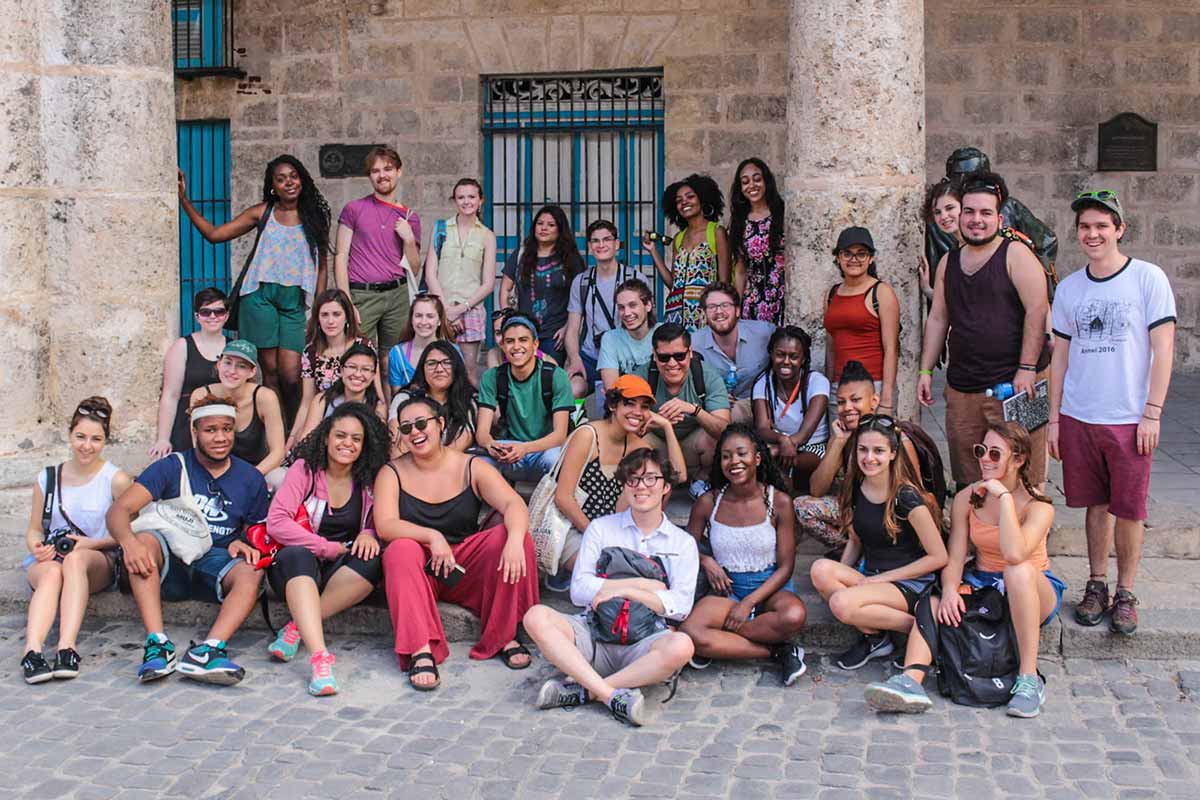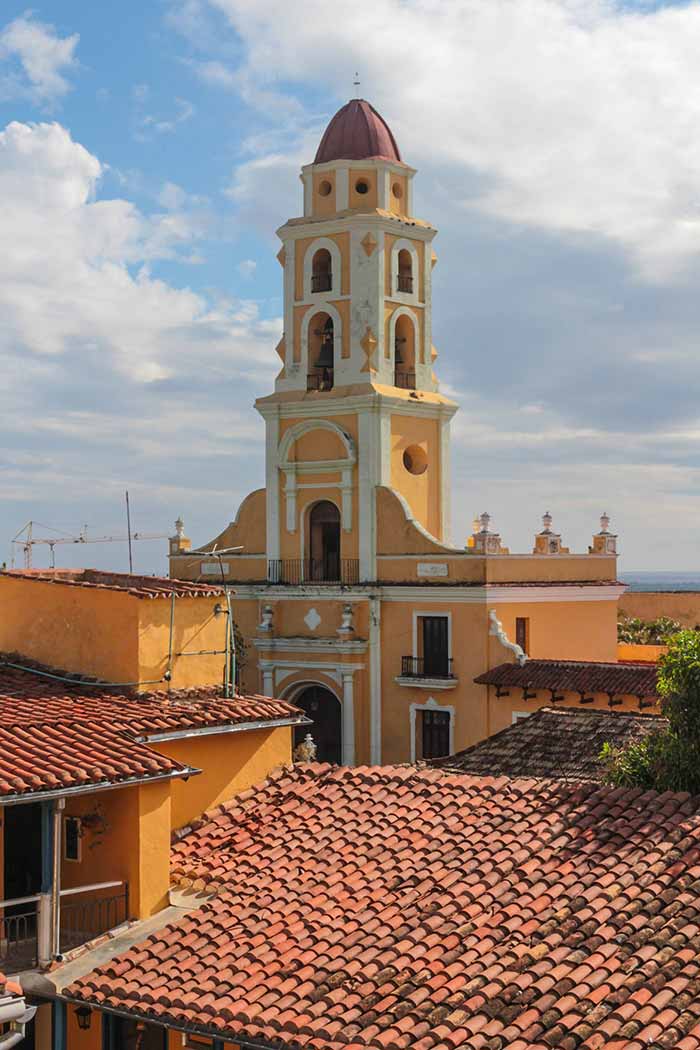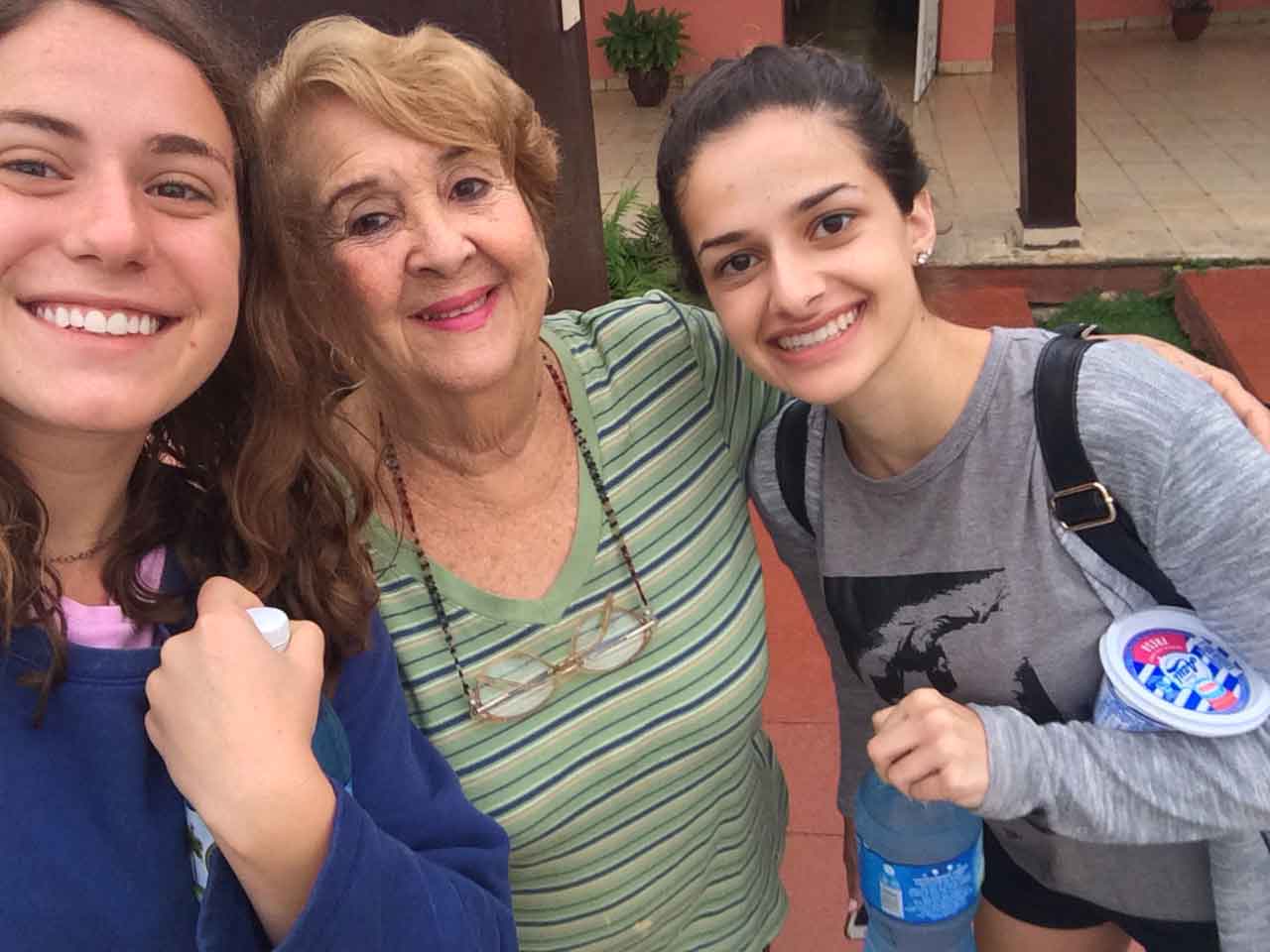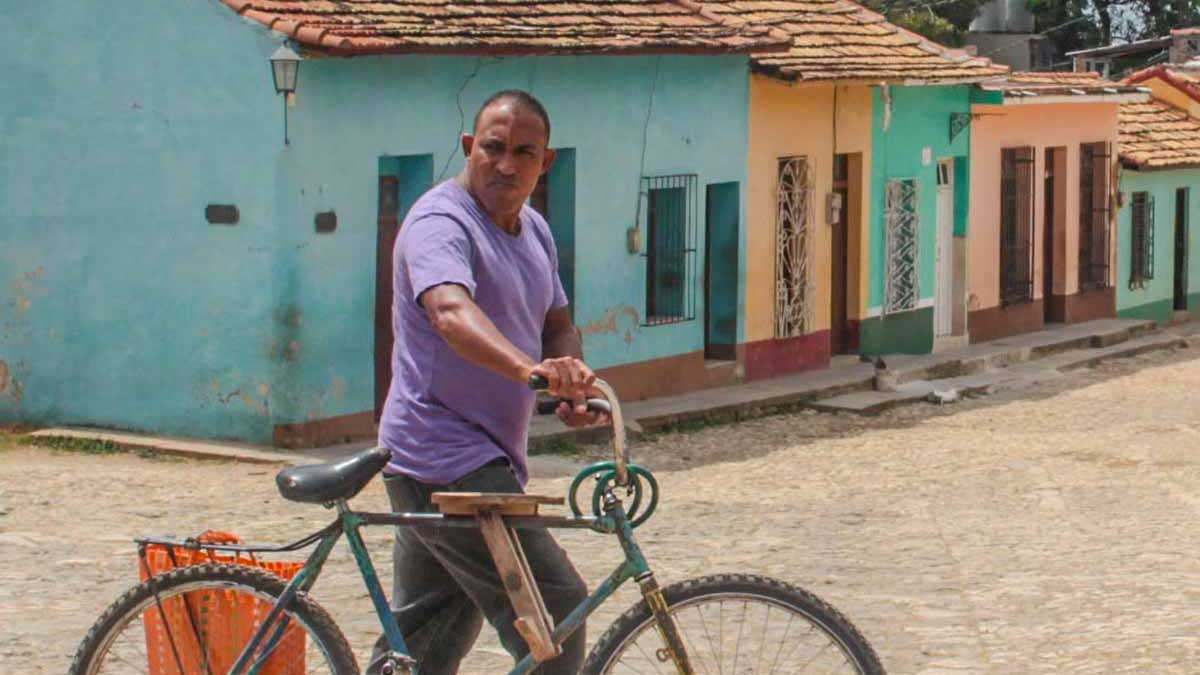Cuba continues to suffer the effects of the United States’ long-standing trade embargo, but Vassar students and faculty who traveled there over Spring Break say they encountered a vibrant society coping with political and economic change. Thirty-three students enrolled in International Studies 110 spent 14 days on the Caribbean’s largest island along with Associate History Prof. Leslie Offut, Geography Prof. Brian Godfrey, and Associate Economics Prof. Sarah Pearlman.
During their stay, they met with members of neighborhood block organizations, historians, economists, artists, environmentalists, and educators in Havana and several other Cuban cities. In the city of Camagüey, about 335 miles east of Havana that has been designated a World Heritage site, the students stayed with host families for two nights. The students also visited three other communities designated as World Heritage Sites, La Habana Vieja, Trinidad and Cienfuegos.

Offutt, who has visited Cuba several times over the past five years, says the country has undergone significant change since Fidel Castro ceded power to his brother, Raul, in 2008. “Raul’s course has been one of modernization,” she says. “The socialism is less pure.” But she added that most of the Cuban people “genuinely revered” Fidel and were profoundly saddened by his death last November.
During the first half of the semester, the students studied Cuba’s political and cultural history and conducted preliminary research on topics such as Cuba’s urban planning methods and its agriculture and environmental policies.
Harin Kang ’18, a political science major from Santa Clarita, CA, says he and his classmates were well prepared to analyze issues facing the Cuban people when they arrived. “The training I received from my professors before I got there allowed me to experience Cuba more authentically,” Kang says. “We were taught to look at issues in a more nuanced way; the respect our professors have for the Cubans’ way of life engendered respect. For me, that was the best aspect of the trip.”
Kang was part of a team of students who examined how the U.S. embargo is affecting food supplies in Cuba. “My project was looking at food security, how the embargo affects what food is imported and how the monetary system works as food prices rise worldwide,” he says.
Kang notes that while Cuba’s growing tourism industry helps Cuban citizens who work in that sector, it is having some negative effects on many others. “As demand for more food comes from the big hotels and resorts that are springing up, that draws food away from the rest of the people,” he says. “And because Cuba’s transportation system is lacking, food is relatively easy to deliver to the resorts near Havana but not so easy to reach rural areas.”

Mariah Caballero ’19, a geography and biology double major from Warden, WA, investigated Cuba’s farming methods. She and her classmates got a first-hand look at how food is grown in Cuba when they visited an organic farm in Alamar, just outside Havana. “Cuban farmers can’t obtain a lot of the material used in mega-farms in the United States because of the embargo,” Caballero says, “so out of necessity they have created small, organic farms that stress sustainability. They’re methods are simple, yet creative.”

In large part because of the embargo, Cuba is only able to grow about half of the food it needs to feed its people, and the resulting need for significant food imports strain the Cuban economy, Caballero says.
While analyzing political and economic issues was a major thrust of the trip, the students said interacting with ordinary Cuban citizens was just as important and rewarding. Clarisel Paulino ’19, whose family is from the Dominican Republic, said many Cubans remarked on how much she looked like their daughters or granddaughters. She said a tour guide nick-named her “Cubana.” “Everywhere I went, I felt so at home,” says Paulino, a computer science major from Orlando, FL. “We met a band one night, and the men treated me like they were my uncles or grandfathers, encouraging me to study hard and make something of myself.”
Alyssa More ’19, a political science major from Wilmington, DE, says her favorite moments on the trip came during conversations with the 19-year-old daughter of her host family in Camagüey. “She was exactly my age, so it was interesting to speak with her about politics and other things,” More says. “I was impressed by how knowledgeable she and other young people were about their country and how proud they were.”

